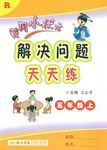题目内容
| 完形填空。 | ||||
| London is such a wonderful city. It is very large. The Thames River 1 through the city from west to east. So the city has 2 parts, the South and North.In the North are important buildings, shops, big parks and interesting places. The weather in London is good. In winter it is not very cold and in summer it is not very hot because the city is near the 3 . People say that London is a foggy (多雾的) city and it often rains. It is true.Last year, when I was in London I met one of the 4 fogs in years. You could almost not see your hand in front of your face.Cars and buses moved along 5 their lights on.When evening fell, the weather 6 even worse.The fog was as 7 as milk. 8 buses and cars 9 . I happened to (碰巧) have an important meeting on the other side of the town, but it was too hard to find a car, I had to get there 10 . | ||||
|
| 1-5 BDADB 6-10 BAABD |

 黄冈小状元解决问题天天练系列答案
黄冈小状元解决问题天天练系列答案
| |||||||||||||||||||||||||||||||||||||||||||||||||||||||||||||||||||||||||||||||||||||||||||||||||||||||||||||||||||||||||||||||||||||||||||||||
| |||||||||||||||||||||||||||||||||||||||||||||||||||||||||||||||||||||||||||||||||||||||||||||||||||||||||||||||||||||||||||||||||||||||||||||||
| |||||||||||||||||||||||||||||||||||||||||||||||||||||||||||||||||||||||||||||||||||||||||||||||||||||||||||||||||||||||||||||||||||||||||||||||
| 完形填空。 | |||
| There are two kinds of music in the world-one is written down and the other is not. Many people earn their living 1 music. They write songs for pop stars and music for films and TV plays. They usually write exact institutions on 2 the music is played. Folk music has been passed down from one generationc(一人) to another. At first it was never written down. People 3 the songs from their families, relatives, neighbors and friends in the same village. These songs were 4 country life, the seasons, animals and plants, and about love and 5 in people's lives. Early performers of music were popular and respected. They 6 learn hundreds of songs 7 . On festivals they used to act and sing in praise of heroes 8 lived long ago. This was at a time 9 there was no radio, TV or cinema. Many of the country people 10 read nor write. In this way stories were passed on from one person to another. This continues even today. | |||
| ( )1. A. writing ( )2. A. why ( )3. A. learn ( )4. A. about ( )5. A. sad ( )6. A. were used to ( )7. A. with heart ( )8. A. who ( )9. A. where ( )10. A. can neither |
B. by writing B. when B. leamt B. to B. happy B. are using B. by heart B. whom B. in when B. can either |
C. in writing C. what C. are leaming C. for C. sorry C. used lo C. to heart C. when C. that C. could neither |
D. to write D. how D. studied D. into D. sadness D. usedn't D. in mind D. which D. when D. could either |
| 完形填空。 | |||
| I was filled with uncertainties and worries until my grandfather told me to stand all. It was no 1 I wasn't looking forward to entering ninth grade. High school is well known for being a place for serious competitions, where everyone seems to be 2 physical changes and love self-esteem (自尊). For me, 3 was my greatest problem. I had always felt no confidence and out of places as one of the taller members of my class, standing a head 4 the other girls. My grandfather would watch me grow 5 uncomfortable, but he didn't laugh at me or try to comfort me. 6 , he would give me advice. "Stand straight and tall," he'd say, 7 I unsuccessfully tried to make myself smaller and shorter. And each time, I would carefully 8 his words. As time 9 , I had changed the way I think about my life. His advice to me has become much more than a challenge to 10 my posture (压 力). It tells me to be proud of who I am. | |||
|